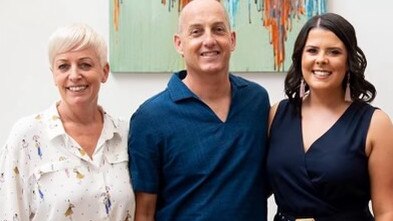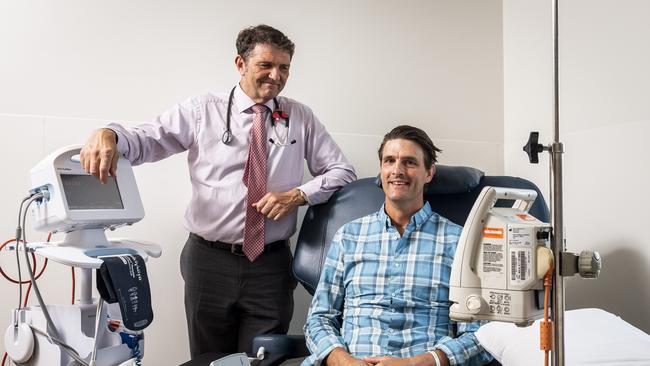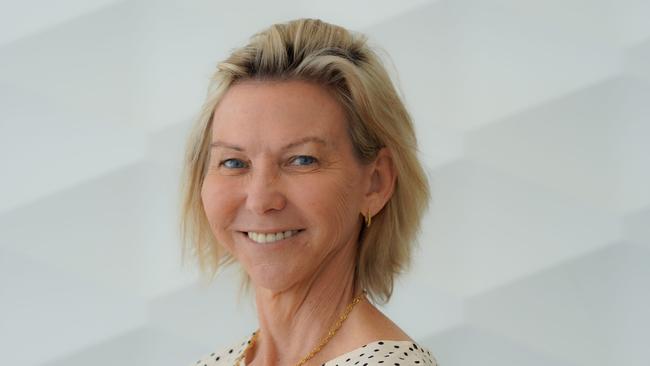‘People are dying’: Aussies fight unfair cancer treatment funding lottery
Aussies are fighting the gross inequity of an unfair lottery system that has left people like Paul Whitman unable to access lifesaving cancer treatments.
Illness
Don't miss out on the headlines from Illness. Followed categories will be added to My News.
Exclusive: An unfair government lottery is denying dying cancer patients treatments they are entitled to, while funding others who don’t qualify.
Patients and medical professionals will converge in Canberra this week to fight the gross inequity in access to the lifesaving treatment, CAR T-cell therapy, which has been approved for use in some blood cancers but not others.
The Medicare Services Advisory Committee (MSAC) should decide which treatments get funded by Medicare, but neither federal or state governments have committed to providing the money for some patients.
Often access to the treatment comes down to which politician a patient lobbies or whether they get a media star to press their case undermining the universal access principle that underpins Medicare.
Australia now lags significantly behind countries overseas in providing access to the treatment, used when blood cancer patients have exhausted all other treatment options including chemotherapy and radiation.

News Corp spoke to patients caught in the funding melee, including Paul Whitman who has just months to live but cannot access the breakthrough cancer treatment.
“Clearly it is very upsetting that I feel like I’m almost within touching distance of treatment that could help me, but I just can’t access it,” Mr Whitman, a father of two, said.
Mr Whitman’s wife Lisa said: “People like Paul are dying. This is already probably too late for him. We’re fighting for other people, because it’s unlikely there’ll be an approval and funding done in the next three months. We’re in a first-world country. It’s unacceptable.”
In 2021, the MSAC approved CAR T cell therapy for treating mantle cell lymphoma, the type of cancer Paul Whitman has.
However, two years after that recommendation state and federal governments have still not committed the funding needed to pay for the treatment leaving Mr Whitman facing a death sentence.

Policeman Robyn Firth died in an ambulance on the way home from Melbourne to Adelaide last year because by the time he had won a fight to get the treatment in another state he was too sick to have it.
His wife Dawn said her husband became the first Australian patient eligible to have the treatment for mantel cell lymphoma only after two politicians took up his case.
“Robyn wrote a letter in which he said surely if a recognised treatment is available then it should be available to all,” Mrs Firth said.

Melbourne father, Geoff Nyssen, is being funded to go to the US to have the treatment even though the MSAC knocked back funding for his cancer.
He won funding under a separate government program that pays for treatment overseas when it can’t be obtained in Australia but this came only after Melbourne radio host Neil Mitchell pressed his case.
“Australia is well down the list of OECD countries for bringing new medicines onto the PBS. We need to fund them sooner when patients are first diagnosed,” he said.
Lymphoma Australia revealed it will cost the federal government $1 million to pay for Mr Nyssen’s overseas treatment, while he could have had it here for $500,000.
“We’re thrilled Geoff is being treated but it highlights the inequity of access to the treatment,” lymphoma Australia CEO Sharon Winton said.

The groundbreaking new treatment uses a patient’s own T-cells to recognise and attack cancer cells and is used when blood cancer patients have exhausted all other treatment options including chemotherapy and radiation.
During the treatment the patient’s own T-cells (immune cells) are collected from the blood and are genetically re-engineered to attach to a specific target on cancer cells.
The manufactured CAR T-cells are then reinfused into the patient (like a blood transfusion) and they attack the cancer cells.
CAR T-cell therapy is currently approved and publicly funded in Australia for diffuse large B-cell lymphoma in adults, transformed follicular lymphoma in adults, primary mediastinal B-cell lymphoma in adults and B-cell acute lymphoblastic leukaemia for children and young adults up to the age of 25.
This year, two CAR T treatments for those living with devastating blood cancers were refused approval by the MSAC.
“Right now, we have a situation in Australia where you are at the mercy of where you live,” said Lymphoma Australia CEO Sharon Winton.
“We want to work with State and Federal Governments on a co-ordinated approach to accelerate access to CAR T and other complex high-cost therapies,” she said.
It was crucial to get the funding right because thousands of international studies are underway to make the treatment work in solid cancers like breast, prostate and bowel cancer and in the future it could become a first line treatment.
Health Minister Mark Butler said “bringing any new health technology into Australia doesn’t happen overnight but our Government is aware of the challenge and working methodically to make it a reality. CAR T therapy is unique as it is administered in state government hospitals, the Commonwealth is going to have to work closely with the states on making this treatment more accessible.”
News Corp understands a key issue with the funding of the treatment for mantle cell lymphoma is that pharmaceutical company Gilead did not accept requirements imposed on the treatment by MSAC. MSAC reconsidered the treatment at its July meeting.
More Coverage
Originally published as ‘People are dying’: Aussies fight unfair cancer treatment funding lottery





